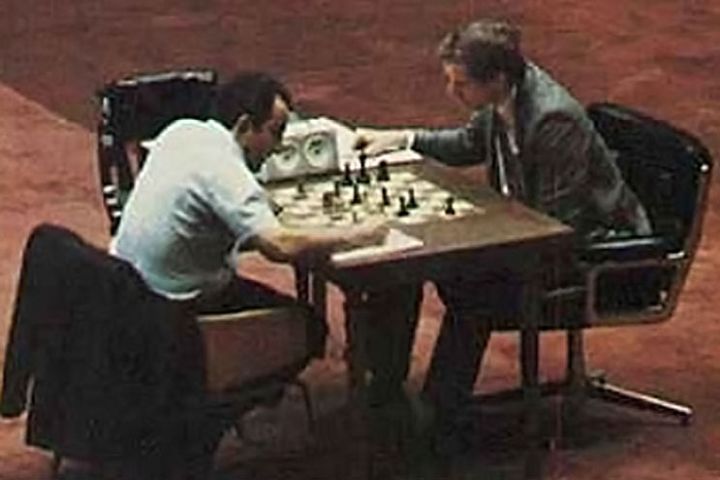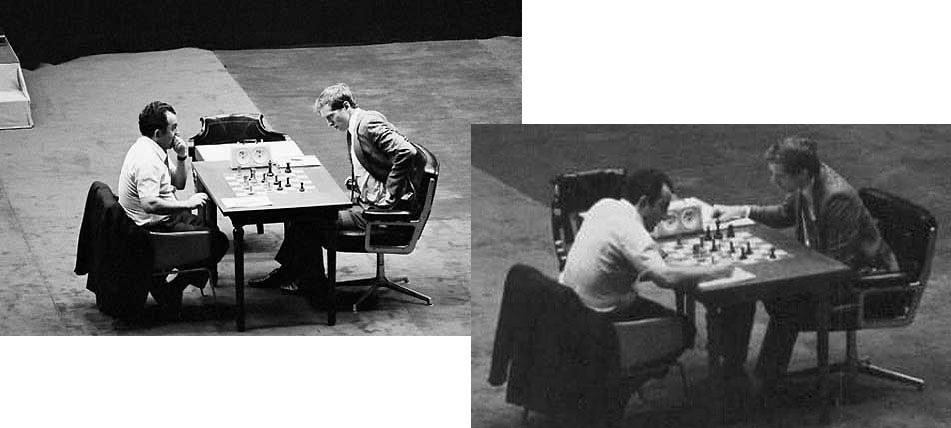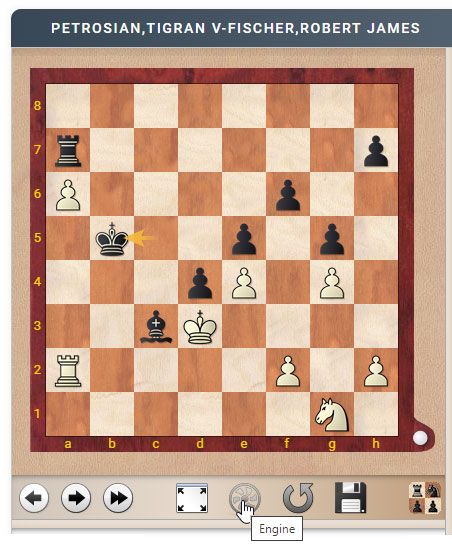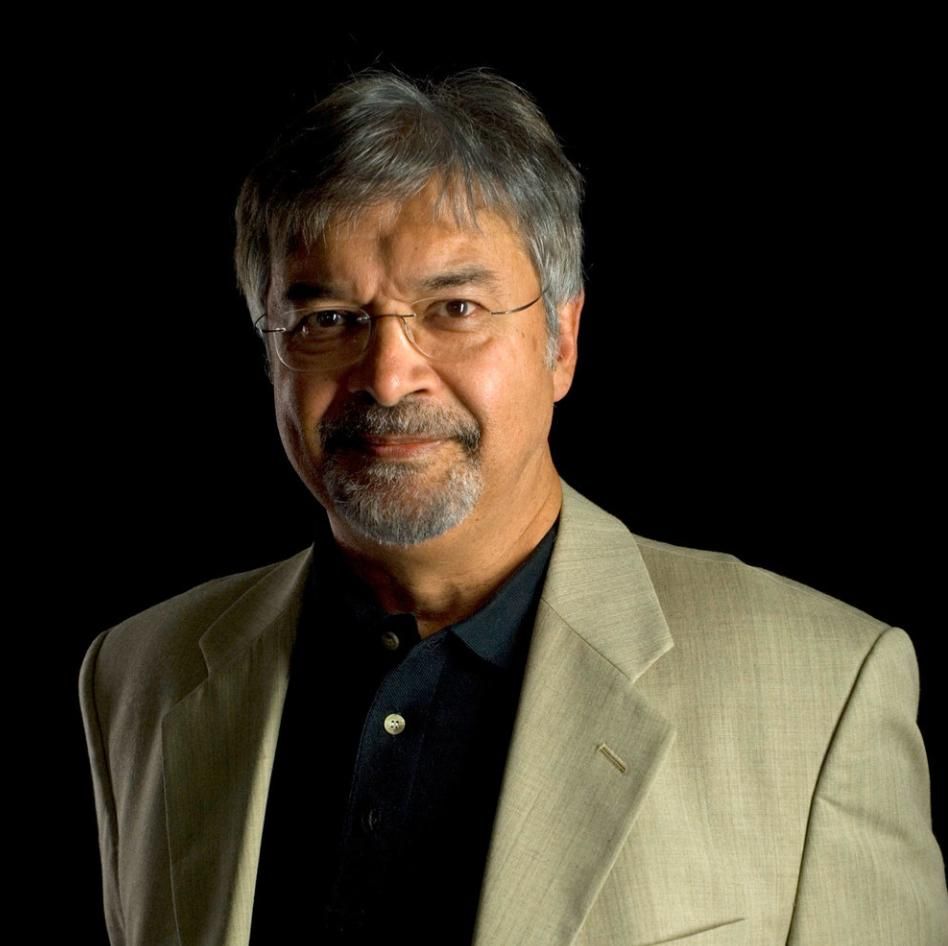Could Petrosian have held against Fischer?
The Fischer-Petrosian Candidates match of 1971 in Buenos Aires was the third and final round in the eliminations to determine the challenger for the World Championship 1972. After defeating two top grandmasters 6-0 each, the charismatic American faced former World Champion Tigran Petrosian who was considered to be almost undefeatable. Their match started 2½-2½, and then in game six Fischer scored a superb win that turned the match in his favor. Did Petrosian seal the wrong move, could he have defended to a draw? Find out how you can do analysis on the live board, play against an engine in a particular position, how it gets saved in the cloud and much more.

The title was held by the 34-year-old Boris Spassky. Fischer came to Argentina after demolishing two of the world's strongest grandmasters in the quarter and semifinals: he defeated Mark Taimanov and then Bent Larsen with perfect 6-0 scores.
After that Fischer faced former World Champion Tigran Petrosian, who many thought would be Fischer's stumbling block. Petrosian had the reputation of being the most resourceful defensive player of all time. In 42 preceding games he had been beaten only twice.
Fischer faced Petrosian in the Teatro General San Martin in Buenos Aires. The match was scheduled over twelve games, and the first player to score 6½ points would be the winner. Fischer was keen to keep his unbroken string of victories going, but in the first game, a Sicilian, Petrosian surprised hime with a novelty in Fischer's favorite line. Suddenly the roles were switched: Petrosian was boldly attacking, Fischer was cautiously defending. But in a very promising position Petrosian played passively and decided to offer a draw – which Fischer refused! Very short of time Petrosian got into a hopeless position and resigned on the 40th move. Fischer had been outplayed, but had still won, making this his 20th victory in succession.
In the second game Fischer played recklessly and found himself in a terrible endgame, which he resigned after 32 moves. His great winning streak was over. The crowd inside the theater and in the lobby chanted, "Tigran! Tigran!"
Game three again gave Petrosian good winning chances, but as in game one he came into time trouble and Fischer managed to draw by repetition. The score was now 1½-1½, but Fischer knew it could easily have been 3-0 for his opponent. In all fairness he was not in great shape: he had caught a cold, and was unable to sleep because of noisy traffic rising from the Avenue of the Ninth of July, on which the hotel was located. He changed his rooms repeatedly, almost every day.
In the fourth game Fischer offered a draw after only twenty moves, and in the fifth game Petrosian offered one on move 34, which Fischer took four moves later. Had the Armenian ex-champion stopped the American's meteoric rise?
In game six Petrosian, who had White, looked relaxed and confident, while Fischer was pale and exhausted. After half an hour of play suddenly two stench bombs went off in the back of the theatre. Arbiter Lothar Schmid asked Petrosian and Fischer if they wanted to stop. Fischer asked if it was poison gas, and when Schmid assured him it wasn't, the game continued. Fischer became more relaxed and concentrated, and broke into Petrosian's queenside. The game was adjourned after move 41, with Petrosian sealing the move.

It was the key moment: Petrosian had sealed 42.Ne2, and when the game was resumed, at five o'clock the following day, Fischer simply tore through Petrosian's and won the game. You can replay the game and analyse it on the board below.
After this victory Fischer went on to win games 7, 8 and 9, ending the match with 6½-2½ points. After winning the final game he briefly acknowledged the cheers of the audience, and then slipped through a back door to go bowling with his friend Miguel Angel Quinteros until 3:30 a.m.
We need your help
This is where we want to enlist your help. Leading endgame expert GM Karsten Müller wrote us: "Should we assume that the adjourned position before the sealed move is a draw (as most sources and analysts do)? Then where did Petrosian go wrong in the game – or did Fischer perhaps also go wrong later, and Petrosian then made another mistake? I personally think that there is exactly one mistake, and it is not the sealed move 42.Ne2. But this of course might be wrong and is very deep."

So do you think that Petrosian sealed a losing move? Is there a way he could have saved the game – either with a different move, or with a different strategy after 42.Ne2? This has been extensively discussed in chess literature, with no firm conclusion.
You probably know that in our replay boards there are a large number of functions you can use to really appreciate the games. Recently we published a comprehensive tutorial on how to get the most out of the live broadcast game viewer. Learn about all the powerful features and buttons that make the ChessBase's replay one of the best watching experiences around.
One big advantage is that you can start an engine (fan icon) that will help you to analyse. You can get multiple lines of analysis by clicking the + button to the right of the engine analysis window. The "!" key, incidentally, shows you the threat in any position, which is incredibly useful in the case of unclear moves.
There is one more thing you can do. It is a lot of fun, but also a serious challenge: Click on the rook icon below the notation window.

This will allow you the play the above position against Fritz, at your level of playing strength (e.g. "Club Player"), right here on the news page. Note that your analysis, in which you can delete, move or promote lines, is stored in the notation as new variations. In the end you will find the game with your analysis in the cloud. So nothing is ever lost.
About the Author

Editor-in-Chief emeritus of the ChessBase News page. Studied Philosophy and Linguistics at the University of Hamburg and Oxford, graduating with a thesis on speech act theory and moral language. He started a university career but switched to science journalism, producing documentaries for German TV. In 1986 he co-founded ChessBase.



















